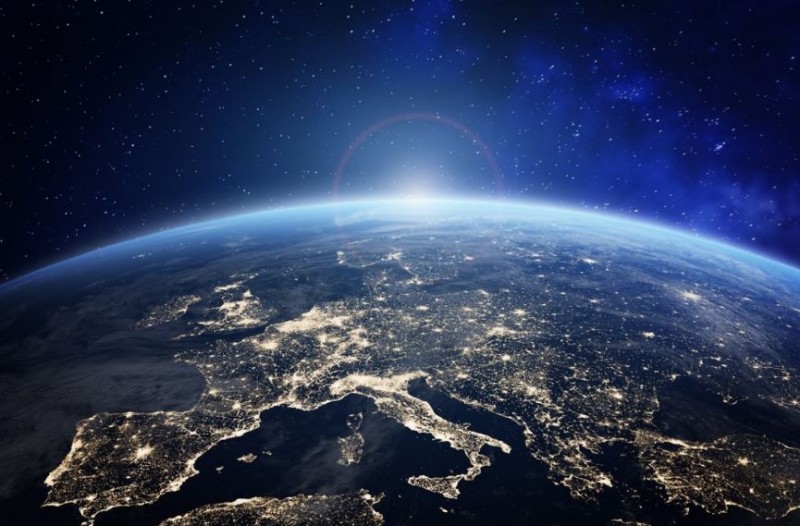
As we navigate our daily lives, the stability of our planet's rotation often seems assured. Yet recent studies reveal unsettling changes in Earth's behavior, akin to a car with misaligned wheels causing it to wobble. Similarly, Earth's rotation has become irregular, affecting our perception of day and night.
Discoveries and Causes
Scientists have uncovered that climate change is not only altering weather patterns but also influencing Earth's rotation. Previously, adjustments to these changes could have been considered, but now the situation has become more serious. The impact of climate change is reaching the core of the Earth's rotation, leading to negative leap seconds being added due to fluctuations in its rotation.
Earth typically experiences about 86,400 seconds in a day, but precise calculations are challenging due to slight changes in rotation caused by movements in tectonic plates, shifts in the Earth's core, gravitational pull from the moon, and climate change.
Effects on Earth's Time and Balance
Human-induced climate change is extending the length of Earth's days. This phenomenon will become increasingly evident in the coming years. Over the past few decades, melting rates of glaciers have increased, particularly in polar regions like Greenland and Antarctica, leading to rising sea levels.
The surplus water is accumulating around Earth's equator, akin to a person gaining weight around their midsection. This is disrupting Earth's balance, slowing its rotation and lengthening the day. Recent research published in the PNAS journal, incorporating artificial intelligence and modern data analysis techniques, predicts that Earth's rotational period will continue to increase. A day will arrive when Earth's rotation may cease entirely, altering the timing of hours and the daily routines of animals.
Historical Context and Future Projections
Reports in Nature Geoscience have highlighted that increased global temperatures are causing more water from melting glaciers to accumulate near Earth's equator, further complicating Earth's rotation. Both magnetic poles of Earth are also experiencing wobbles, contributing to the slowing rotation observed over the past three decades.
Over 100 million years ago, Earth completed a day in 19 hours, gradually slowing to the now-familiar 24-hour cycle due to these changes. As recently as 2020, Earth was spinning faster compared to 1960, but by 2021, this speed had started to decrease. In June 2022, the shortest day on record was noted, underscoring a consistent increase of 2.3 milliseconds per century in the length of Earth's day.
Earth's rotational changes are not merely scientific curiosities but have profound implications for our daily lives, ecosystems, and climate. Understanding these shifts is crucial as we navigate a future where even the rhythm of day and night could be altered by our actions on the planet. As the Earth's rotation slows, it prompts us to consider the broader impacts of human-induced climate change on our world's delicate balance.
Bolly Window: The Go-To Destination for Bollywood Gossip and Glamour
Air India's First A320neo Takes Off on Delhi-Bengaluru Route
India Begins Women's Asia Cup Title Defence Against Arch Rivals Pakistan